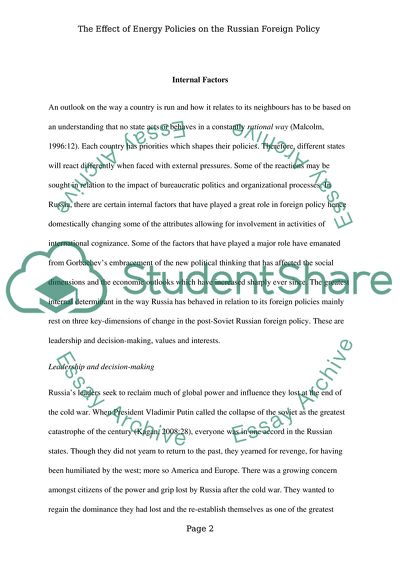Cite this document
(“The Effect of Energy Policies on the Russian Foreign Policy Coursework”, n.d.)
The Effect of Energy Policies on the Russian Foreign Policy Coursework. Retrieved from https://studentshare.org/politics/1777484-factors-that-make-foreign-policy-dimensions-of-energy-policy-of-russia-in-the-first-decade-of-the-xxi-century
The Effect of Energy Policies on the Russian Foreign Policy Coursework. Retrieved from https://studentshare.org/politics/1777484-factors-that-make-foreign-policy-dimensions-of-energy-policy-of-russia-in-the-first-decade-of-the-xxi-century
(The Effect of Energy Policies on the Russian Foreign Policy Coursework)
The Effect of Energy Policies on the Russian Foreign Policy Coursework. https://studentshare.org/politics/1777484-factors-that-make-foreign-policy-dimensions-of-energy-policy-of-russia-in-the-first-decade-of-the-xxi-century.
The Effect of Energy Policies on the Russian Foreign Policy Coursework. https://studentshare.org/politics/1777484-factors-that-make-foreign-policy-dimensions-of-energy-policy-of-russia-in-the-first-decade-of-the-xxi-century.
“The Effect of Energy Policies on the Russian Foreign Policy Coursework”, n.d. https://studentshare.org/politics/1777484-factors-that-make-foreign-policy-dimensions-of-energy-policy-of-russia-in-the-first-decade-of-the-xxi-century.


